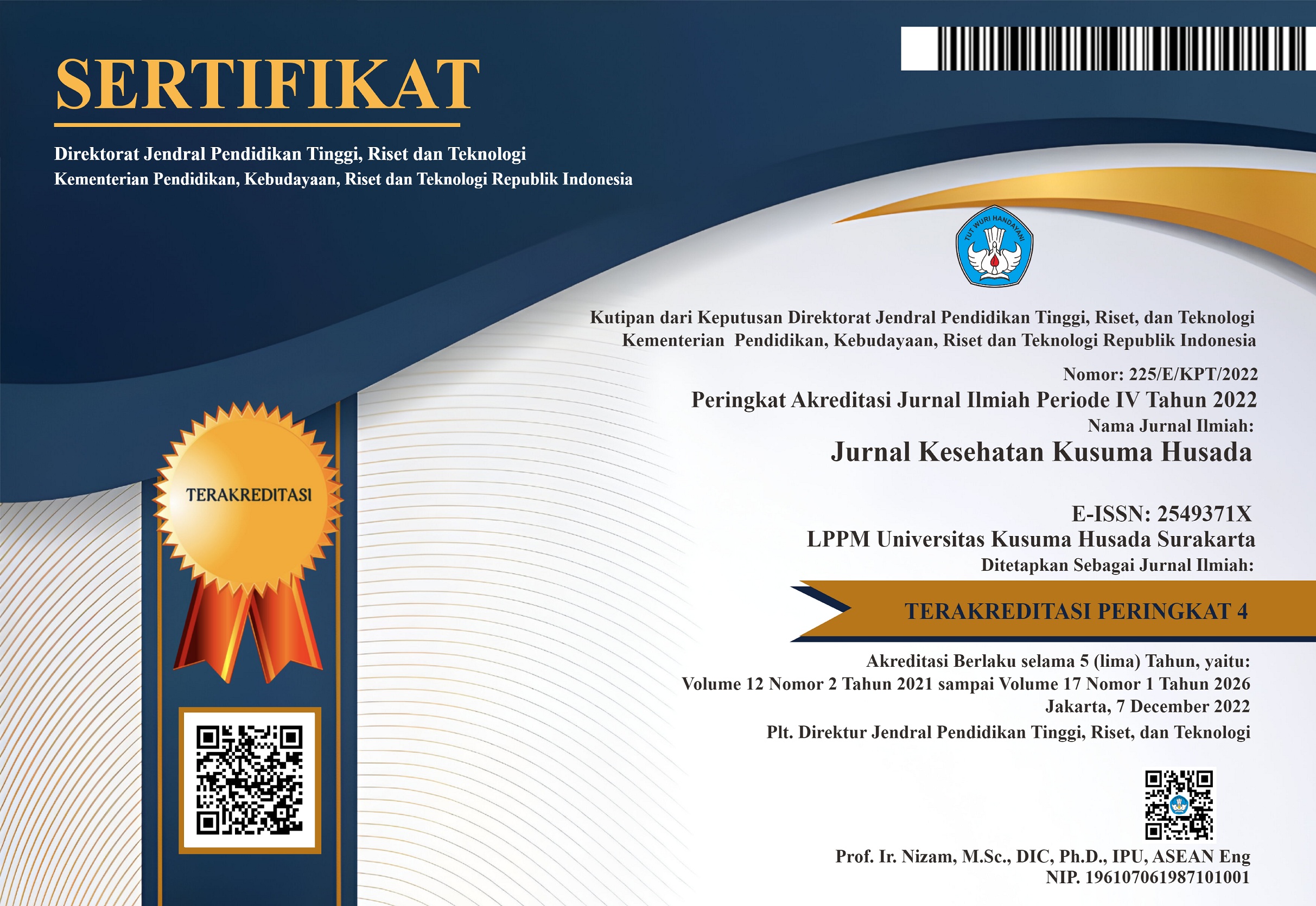PERUBAHAN PENGETAHUAN TENTANG JENIS MAKANAN DAN CARA PENGOLAHANNYA PADA PENGURUS LANSIA PEREMPUAN POSTMENOPAUSE DI PANTI WREDA SALIB PUTIH, KOTA SALATIGA
Abstract
Kebiasaan makan dan pemilihan bahan makanan adalah faktor penting yang berpengaruh pada status kesehatan dan kemampuan fisik seseorang yang lanjut usia. Apabila usia meningkat jumlah dan frekuensi makan yang dikonsumsi akan menurun jika dibandingkan dengan golongan yang lebih muda. Tujuan Penelitian ini adalah untuk melihat perubahan pengetahuan tentang jenis makanan dan cara pengolahannya pada pengurus perempuan post-monopause. Metode Penelitian ini yaitu penelitian eksperimen dengan menggunakan pre dan post test, pengambilan data awal mengenai frekuensi makan dari subjek di lakukan dengan menggunakan Food Frequency Questionnaire (FFQ) dan memberikan edukasi terhadap pengurus lansia panti wreda dengan menggunakan pendekatan positive deviance. Edukasi diberikan kepada pengurus lansia karena dianggap lebih berwewenang dalam mengatur semua kebutuhan makan untuk lansia post-menopause. Hasil penelitian menunjukan bahwa pengurus lansia mengalami perubahan pengetahuan dalam memilih makanan sehat untuk lansia post-menopause. Dilihat dari hasil edukasi yang dilakukan pada pengurus lansia post-menopause. Hasil skoring menunjukan bahwa jawaban pengurus meningkat setelah pemberian edukasi. Pengurus lebih paham tentang memilih dan mengetahui apa saja makanan dan minuman yang baik dan pengolahan untuk lansia post-menopause. Hal ini dibuktikan dengan antusias respon pengurus lansia saat menjawab pertanyaan post test yang di berikan dan aktif untuk bertanya.
The habit of eating food and choosing the food ingredients arethe main factor of elderly healthy and physicall ability. The increasing ages of people will affect the amount of food frequency. Old age will has small food frequency than young age. The aim of this study is to examine the changing of knowledge of post- menopause’ elderly caretaker on the type food and the food processing. The research method is an experiment study using pre and post test, the initial data collection on the frequency of eating of the subject was done using the Food Frequency Questionnaire (FFQ), and gave education to elderly 25 Jurnal Kesehatan Kusuma Husada - Januari 2019 nursing home administrators using a positive deviance approach. Education is given to elderly’s women carataker because they are considered more authoritative in regulating all food needs for postmenopausal elderly. The result of this study showed that the caretakers of post-menopause women have the changing of knowledge in electing healthy food. The post-menopause caretaker improved their understanding about helathy food and drink through given education. The changing of knowledge was showing from the upgrade scoring result from pre-post test. The observation during education provision also showed that the post-menopause caretaker active to give questions and responds.

This work is licensed under a Creative Commons Attribution 4.0 International License.
The copyright of the published articles belongs to Jurnal Kesehatan Kusuma Husada.

This work is licensed under a Creative Commons Attribution 4.0 International License.











